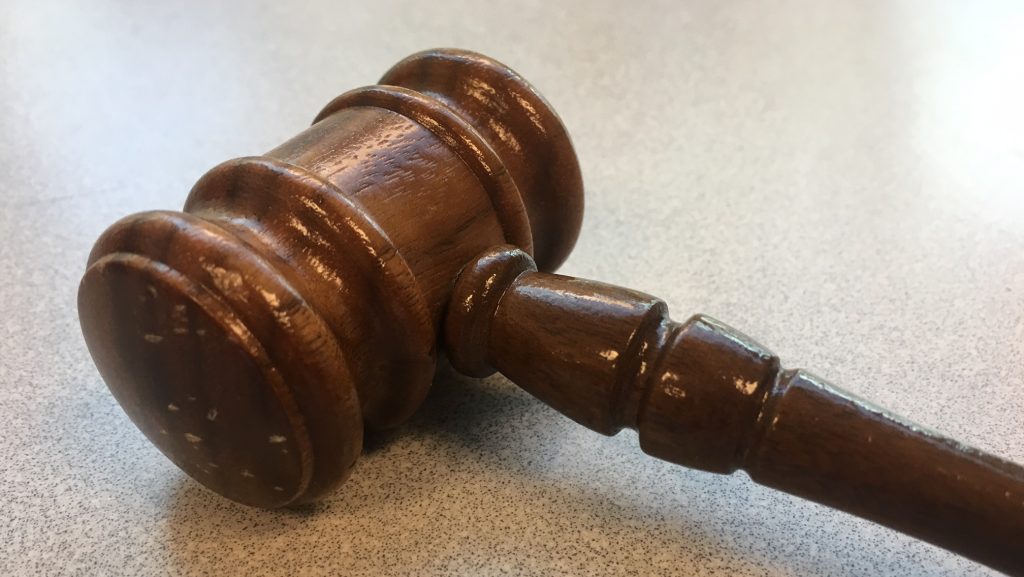Experts Unpack the Kyle Rittenhouse Not Guilty Verdicts
Legal experts say it’s important to separate the very narrow work of the jury with the larger societal and policy questions this acquittal brings up.

More than a year after the killing of two people in Kenosha, Wisconsin who were protesting racial injustice and police brutality, the gunman — Kyle Rittenhouse — was acquitted of all charges on Friday. It’s a trial that has been under a microscope for weeks, serving as a manifestation of two Americas — one right, one left, one white, one Black, one whose rights are protected by the criminal justice system, and one whose rights are not.
“I think Kyle Rittenhouse will become the poster boy for vigilante justice. And this will just encourage more of this kind of conduct, which will make us all less safe.” –Barbara McQuade, University of Michigan Law
The jury’s verdict has sparked protests of its own, including in Detroit. But some activists worry about the chilling effect it might have on people exercising their First Amendment rights and whether the verdicts promote vigilante justice in the United States.
Listen: Legal and sociological experts weigh in on the Kyle Rittenhouse verdicts.
Guests
Barbara McQuade is a law professor at the University of Michigan and the former United States Attorney for the Eastern District of Michigan. She’s a co-host of the #SistersInLaw podcast. She notes that “the jury is required to look at this in the narrowest of senses in a vacuum.”
“Looking at it in that very narrowest of senses, I can see how when they look frame by frame at these videos, a jury might have found not guilty here,” says McQuade. “But the bigger picture, of course, I think is the one that the rest of us look at is the societal implications here of the big picture and what this will do to vigilante justice. Now, I don’t think that means it’s over. There are also some potential civil remedies. But again, I think Kyle Rittenhouse will become the poster boy for vigilante justice. And this will just encourage more of this kind of conduct, which will make us all less safe.”
She also notes what she sees as a racial double standard in our criminal justice system that the Rittenhouse case exemplifies.
“If Kyle Rittenhouse had been Black, I don’t think he would have been acquitted or found guilty at trial. I don’t think he would have made it that far. I think he would have been killed on the night of the event,” says McQuade.
Kimberly Atkins Stohr is a senior opinion writer at The Boston Globe, a former trial and appellate litigation attorney, and also a co-host of the #SistersInLaw podcast with McQuade. She’s also a Detroit native and a Wayne State University alum.
She agrees that it’s important to separate the very narrow work of the jury with the larger societal questions at play.
“As a society, do we accept — or do we have a justice system that accepts — someone who was not a police officer, who was not a medic, who was not a security guard, going and taking on those roles himself with an AR-15 in a community that isn’t his, and when tragedy ensues — very predictably — having no way to hold anyone accountable for it?”
Dr. Rashawn Ray is a sociologist and Rubenstein Fellow of Governance Studies at the Brookings Institution. He says race is undeniably a factor in trials like this.
“We know that when a defendant is white, and is claiming self defense, claiming stand-your-ground, claiming citizen’s arrest laws, they are significantly more likely to be found not guilty. And as we see with this trial is not simply about the facts of the case. It’s also about how different parties, including the judge, is interpreting law for others.”
Trusted, accurate, up-to-date.
WDET strives to make our journalism accessible to everyone. As a public media institution, we maintain our journalistic integrity through independent support from readers like you. If you value WDET as your source of news, music and conversation, please make a gift today.
